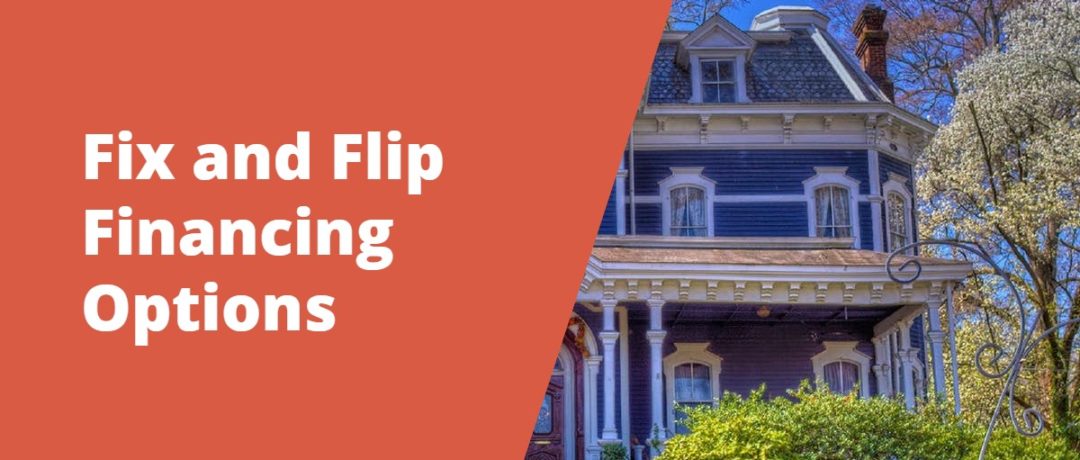If you are in the business of rehabbing and reselling properties, a fix and flip loan can help get things moving. These types of loans are very popular with short-term real estate investors who are looking for a fast closing. However, they work differently from traditional home loans. This article tells you everything you need to know in order to leverage this kind of financing for all your short-term investment needs.
How Do Fix and Flip Loans Work?
Fix and flip loans are designed to help finance the cost of purchasing and renovating a property so it can be sold or rented out. Although the terms vary greatly from one lender to the other, these types of loans tend to have short terms. The idea is that the investor will be able to sell the property after the property is rehabbed and then pay off the short-term hard money loan. Due to their short-term nature, fix and flip loans tend to come with a higher interest rate compared to traditional financing. On the positive side, investors can secure financing within a matter of days or weeks. This is a huge advantage compared to conventional financing arrangements where the approval process can drag on for weeks on end.
Fix and Flip Options
When it comes to securing a fix and flip loan, investors have a few different options.
1. Hard money loan
A hard money loan is a common form of short-term financing that’s typically used by fix and flip investors to buy and renovate real estate property. These loans are ideal for house flippers because they have a less stringent underwriting process and can be used to finance properties in very poor conditions. Also referred to as rehab loans, hard money loans have minimal qualifications for approval and can be processed in a very short time (usually just a few days). This makes them a favorable option for most fix and flippers who are looking for the quick, flexible financing that traditional lenders are less likely to provide.
2. Cash out refinance
This is a strategy used by fix and flip investors when they refinance an existing property that is free and clear in order to fund the purchase of a new investment property. This option helps fix and flippers leverage equity from an existing house by issuing a new loan to purchase the new property. The loan issued is referred to as a ‘first lien’. This means you must own the property free and clear and have no existing lien on the property.
3. Home equity line of credit (HELOC)
This is another type of funding that fix and flip investors can use. This loan works more like a credit card than a traditional loan. The investor is issued with a line of credit depending on their existing home value. They’ll be able to utilize the credit over the HELOC’s term. Interest will be charged on the amount borrowed till it is repaid. A HELOC can be both a first or second, which means it can be taken in addition to an existing mortgage. There are also no restrictions to how the investor uses the money, but this amount of loan can only be issued on a primary residence (and not an investment property). These HELOC loans are typically provided by a traditional bank.
4. Investment property line of credit (LOC)
This type of financing is very similar to a Home Equity Line of Credit but is designed for use on investment properties. A LOC works like a credit card whereby you’ll be required to pay interest on just the money that you use. This kind of loan can only be used on a non-owner-occupied property.
5. Bridge loan
This is a temporary loan that is used to bridge the gap between two real estate transactions. (selling an existing home and acquiring a new one). This is ideal in situations where an investor finds a great deal that won’t be available by the time, they have cash in place to close it.
How to Find a Fix and Flip Lender
Finding the right fix and flip lender all narrows down to your specific needs and circumstances. Most fix and flip operators tend to work with hard money lenders. You also want to work with a hard money lender that does not charge points up-front or impose ridiculous prepayment penalties. Hard money lenders tend to only work with real estate investors within their geographical areas, so start your search with local firms. The idea is to come up with a list of your requirements, and then work from there to find a source of financing that is most beneficial to you.
Fix and Flip Loan Requirements
There are a few things you should keep in mind to increase the chances that your fix and flip loan will be approved. To start with, many fix and flip lenders want to see that you have an exist strategy. Be prepared to show your selected lender what you think it’ll cost you to get the remodel complete and your plans to pay off the fix and flip loan. Most fix and flip lenders will also look at your track record and experience with fix and flip loans before they approve any financing. Applicants who already have considerable experience flipping properties have an easier time securing a loan. However even new fix and flip investors can still get a fix and flip loan as long has the property is a good fit for the fix and flip lender and the real estate investor has a solid exist strategy and rehab plan.
Have more questions, our team at Atlanta Private Lending is ready to help. We have worked with hundreds of fix and flip investors across Georgia and are prepared to meet your needs.

